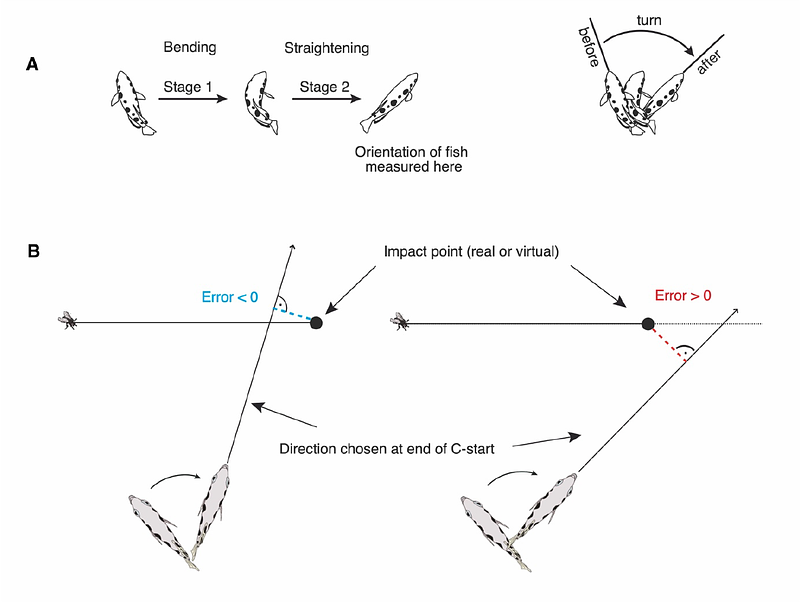Learning and cognition in a decision made at reflex speed

Learning and cognition in a decision made at reflex speed
Krause, M.; Schulze, W.; Schuster, S.
AbstractIn recent years it has become clear that many decisions do not obey the rule that more time yields better decisions. These decisions can be made remarkably fast and yet accurately, sometimes based on very limited information. It is presently unclear whether such 'blink' or high-speed decisions lack cognitive aspects that only much slower 'deliberative' decision-making can support. Here we demonstrate an unexpected degree of flexibility and cognition in a decision made by a hunting animal at reflex-like speed. Based on observing initial speed, direction, and height of falling prey archerfish decide in just 40 milliseconds on a turn toward the later ballistic landing point. This enables the fish to dash off to arrive simultaneously with prey and to secure it against numerous competitors. We established an approach that allowed us to replace ballistics, the rule that governs the turn decisions, with a novel rule of how to connect the input variables with the rewarded turns. This approach revealed that the fish are not using a hardwired circuit but were able to reprogram their decision in efficient ways that allowed them to immediately generalize to untrained settings. Training even allowed the decision to simultaneously use two distinct sets of rules, one for each of two distinct objects. The flexibility of the decision and the occurrence of high-level cognitive features are counterintuitive for a reflex-like decision made faster than an Olympic sprinter can respond to the start gun. However, they imply that combining speed and accuracy in rapid decisions does not generally make them less smart than decisions made over far longer timescales.


